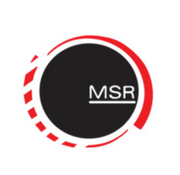MRI Center Explains What a Nuclear Stress Test Reveals

Whether or not your family has a history of heart conditions, it is important to regularly examine your cardiovascular health. There are a variety of ways to accomplish this, says the MRI team at Main Street Radiology in Bayside, NY, including nuclear stress tests. Below they explain what these are and why the method is so effective for discovering medical issues early.
What Is a Nuclear Stress Test?
A nuclear stress test is a medical exam that allows MRI and radiology staff to monitor how blood flows through your heart. During the process, doctors put electrodes on a patient’s chest and back to examine their heart through electrocardiogram readings. Patients walk on a treadmill until doctors have sufficient readings on how they manage the stress. After the exercise segment, they inject individuals with a small amount of thallium or another radioactive substance and take pictures of the heart using a gamma-ray camera. A 3- to 4-hour break follows, and then doctors take another series of photos of the heart at rest.
What Does It Reveal?
 With the results of the test, doctors can get a detailed look at how efficiently blood flows through your heart. The information provides valuable insight into your risk of heart disease and other cardiovascular issues, as well as whether any ongoing treatment is effective. It’s also helpful after heart surgery, as it allows cardiologists to create the best treatment plan for existing or potential issues.
With the results of the test, doctors can get a detailed look at how efficiently blood flows through your heart. The information provides valuable insight into your risk of heart disease and other cardiovascular issues, as well as whether any ongoing treatment is effective. It’s also helpful after heart surgery, as it allows cardiologists to create the best treatment plan for existing or potential issues.
If you’re interested in learning more about a nuclear stress test, turn to the professionals at Main Street Radiology. They offer comprehensive radiology and screening services, including MRI and ultrasound, as well as breast cancer screening and bone density testing. They’ve served the residents of Queens for almost 50 years and use state-of-the-art equipment to ensure the best results. Call (718) 428-1500 today to schedule an appointment and visit their website and Facebook page to learn more about the MRI center.
About the Business
(139 reviews)
Have a question? Ask the experts!
Send your question

